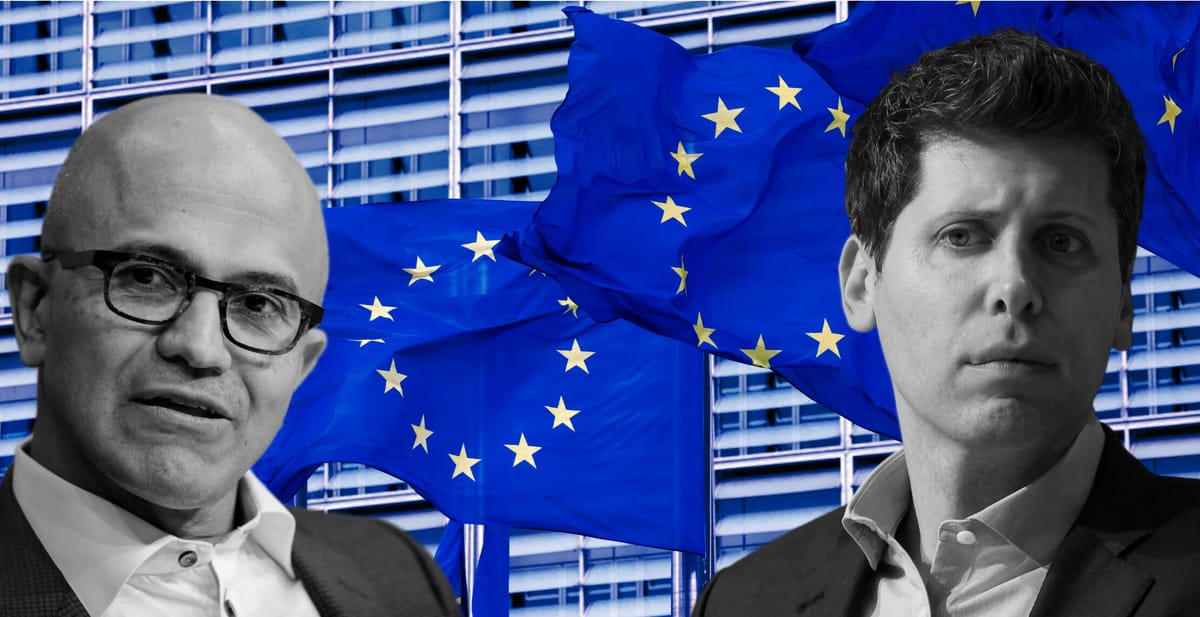
The European Commission announced Tuesday that it will assess whether Microsoft's multibillion-dollar partnership with leading AI startup OpenAI should face an in-depth merger investigation.
The probe comes amid broader European Union scrutiny into competition dynamics surrounding generative artificial intelligence systems like ChatGPT that can generate original text, images and other media.
The Commission said it is specifically investigating agreements struck between major tech platforms and generative AI developers over potential anti-competitive effects. It cited Microsoft's alliance with OpenAI, the San Francisco-based firm behind ChatGPT, as one arrangement now under its microscope.
"The European Commission is checking whether Microsoft's investment in OpenAI might be reviewable under the EU Merger Regulation," the Commission stated Tuesday.
The Microsoft-OpenAI partnership, which has seen Microsoft invest billions of dollars since 2019, including a headline-making $10 billion infusion last year, stands as a significant example of big tech's growing interest in AI. Microsoft's total investment in OpenAI is reported to have reached a staggering $13 billion. The partnership has already led to the integration of OpenAI technology in Microsoft's key products like Office, Bing, and Windows, while also providing OpenAI access to Microsoft's Azure cloud computing resources.
This scrutiny by the EU Commission follows similar concerns raised by the U.K.'s Competition and Markets Authority and the U.S. Federal Trade Commission. The focal point of these investigations is whether Microsoft's deepening ties with OpenAI create a 'relevant merger situation' that could potentially stifle competition and innovation in the rapidly evolving AI landscape.
But governance changes at OpenAI last year sparked speculation over Microsoft potentially wielding control. Microsoft now has a non-voting board observer seat, rankling regulators eyeing the partnership.
The probe underscores rising EU unease over a few big tech giants like Microsoft tapping dominant resources to potentially monopolize a transformative AI wave before it has even crested.
The Commission simultaneously launched an open call for input around upholding competition in virtual worlds and generative AI markets it expects to exponentially grow. Interested parties can submit responses until March 11th as the Commission mulls its next moves.
"It is fundamental that these new markets stay competitive, and that nothing stands in the way of businesses growing and providing the best and most innovative products to consumers," said Commission EVP Margrethe Vestager.
With AI-fueled innovation advancing at lightning speed, EU is rushing to get a handle on appropriate policy safeguards before potentially anti-competitive dynamics become entrenched. The Microsoft-OpenAI relationship is an early test case of the EU's resolve to regulate big tech's next generation plays.

